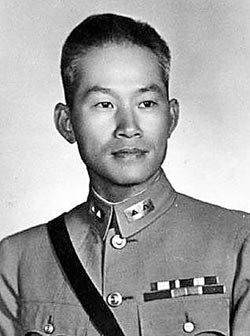Sun Tien-ping is mulling over the possibility of moving the remains of his father, the late ROC general Sun Li-Jen, back to the family’s ancestral home in eastern China’s Anhui Province.
Sun Tien-ping was part of a small delegation of World War II veterans who attended the military parade in Beijing last Sept. 3 to commemorate the 70th anniversary of the end of the war.
The late Sun was one of the few fortunate senior officials in the Nationalist Army of the KMT in China to avail foreign training. He initially began his education abroad in Purdue University's civil engineering department in 1923 and eventually studied at the Virginia Military Institute.
General Sun, dubbed the "Rommel of the East" by Western military experts, gained many military achievements, and among them was defeating a much larger Japanese force in Burma in 1942 with barely 1,000 soldiers at his disposal.
Under Sun's command, the Nationalist government's army was able to reopen Ledo road, an important strategic point during the war, which links China and India.
After World War II, when the Communist Party of China (CPC) engaged the government in a struggle for power, General Sun led troops to a successful campaign in the northeast province of Jilin in 1946, defeating communist commander Lin Bao's troops in battle.
However, the general was not fully trusted by Nationalist leader Chiang Kai-shek and after one of Sun's officers was convicted of being a spy for the communists, the authorities were convinced he was involved in a coup plot. As a consequence, he was removed from his position and confined in his residence in Taichung from 1955-1988.
An official investigation in 2001 cleared Sun of all charges, but an apology has never been issued from the ROC government.
Finally, Sun drew his last breath in Nov. 1990, in Taiching.
He had four children with his third wife Chang Mei-ying.



























